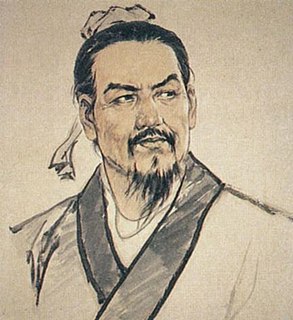A Quote by Edmund Waller
His kingdom come!" For this we pray in vain,
Unless He does in our affections reign.
How fond it were to wish for such a King,
And no obedience to his sceptre bring,
Whose yoke is easy, and His burthen light;
His service freedom, and His judgments right.
Related Quotes
This is the good and happy news, that Christ has paid for our sin, and through His suffering has redeemed us from eternal death. It is His kingdom and His ministry, to preach the Gospel to the poor; that is His purpose. For to the great and holy He cannot come. They do not wish to be counted sinners, and therefore do not need His Gospel.
Man in his raw, natural state as he comes from the womb is morally and spiritually corrupt in disposition and character. Every part of his being-his mind, his will, his emotions, his affections, his conscience, his body-has been affected by sin (this is what is meant by the doctrine of total depravity)
Jesus is now the Lord; He is enthroned at the right hand of God; He is reigning in His kingdom. But this is a Lordship and a kingly reign which is known only to believers. It must be confessed by faith. His Second Coming will mean nothing less than the Lordship which is His now will be visible to all the world. When we pray, 'Thy kingdom come,' this is what we are praying for: the effectual and universal rule of Christ in all the world, not only over believers.
In the first place, the government ought not to be invested with power to control the affections, any more than the consciences of citizens. A man has at least as good a right to choose his wife, as he has to choose his religion. His taste may not suit his neighbors; but so long as his deportment is correct, they have no right to interfere with his concerns.
The master in the art of living makes little distinction between his work and his play, his labor and his leisure, his mind and his body, his information and his recreation, his love and his religion. He hardly knows which is which. He simply pursues his vision of excellence at whatever he does, leaving others to decide whether he is working or playing. To him he's always doing both.
There are no term limits on His reign. He has always been King and He always will be King. There is no death that threatens the perpetuity of His sovereign authority. There is no usurping of power by a lesser rival to His throne. There are no coups, no revolutions (at least, none that succeed). There is no threat of impeachment. He is a King who rules eternally.
The barbarians of Germany had felt, and still dreaded, the arms of the young Caesar; his soldiers were the companions of his victory; the grateful provincials enjoyed the blessings of his reign; but the favourites, who had opposed his elevation, were offended by his virtues; and they justly considered the friend of the people as the enemy of the court.






































